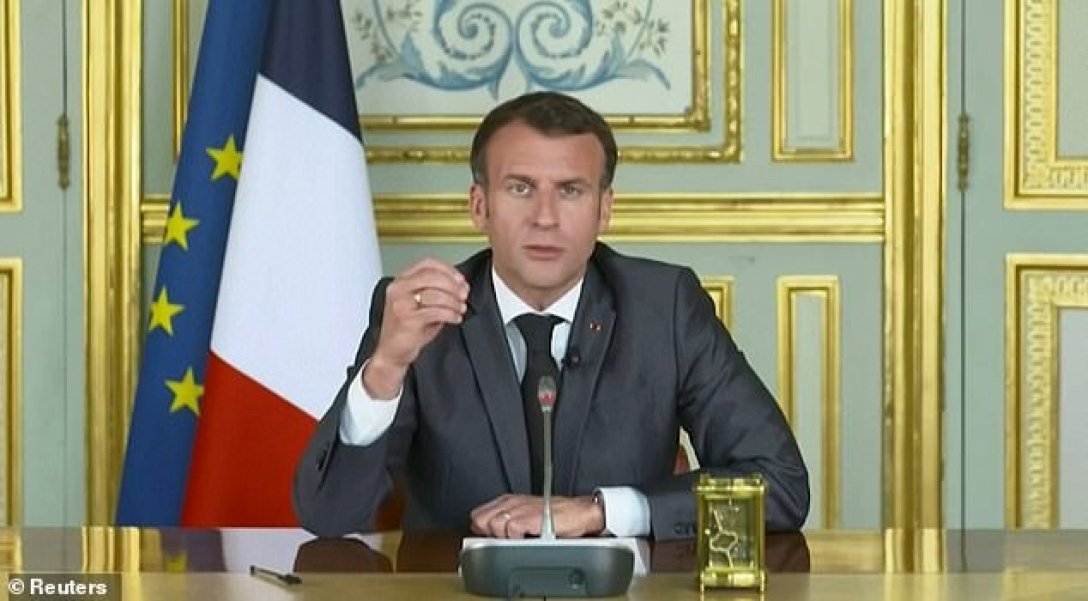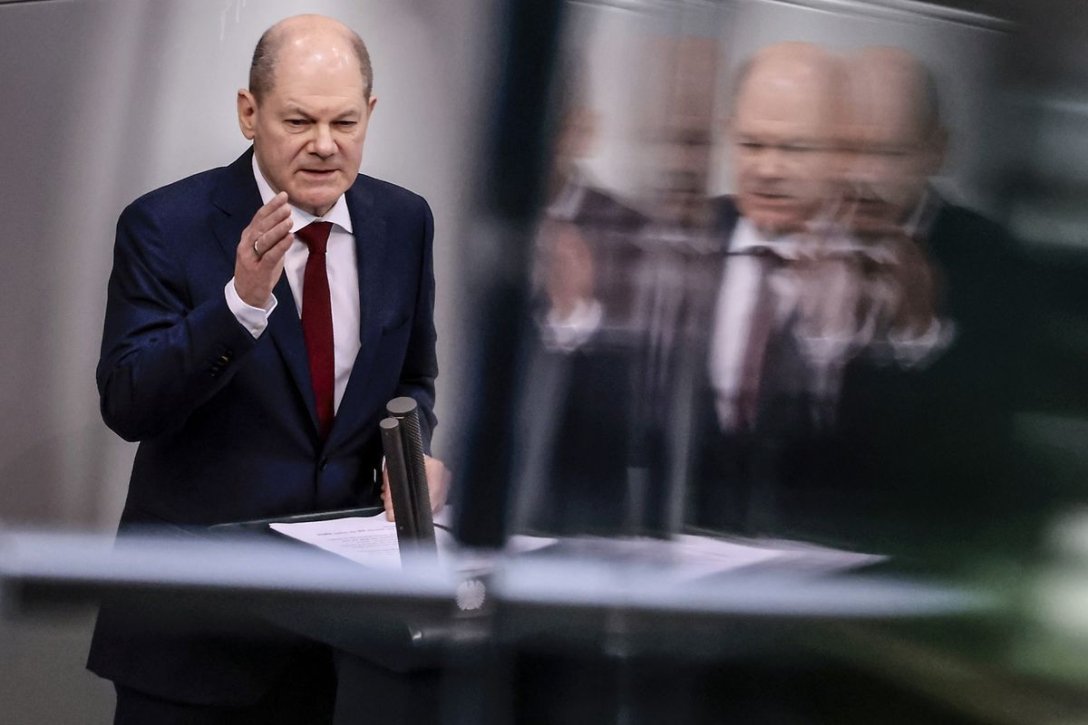Foreign Conflict: What Actions Will Allies Take Following Russia's Recruitment of Soldiers from North Korea?
Recently, at the "Ukraine — Northern Europe" summit in Reykjavik, Vladimir Zelensky discussed the issue of sending North Korean troops to participate in the Russian-Ukrainian war during an interview with Northern European media. In particular, when asked whether the involvement of North Korean soldiers could encourage European nations to send their troops rather than just weapons to Ukraine, the president stated, "I'm not sure, to be honest. As far as I know, everyone is skeptical and very cautious about this."
The head of state also emphasized that the official Kyiv has never insisted on this idea and has not discussed it in detail. "It's very dangerous. When you don't have such a decision from leaders, from societies, etc., it's really risky to bring up this topic. Because you could lose any other support... We cannot risk losing the support we already have," Zelensky summarized.
Meanwhile, the Pentagon has confirmed that North Korean military personnel have arrived in Russia. According to the latest estimates from the U.S., Pyongyang has sent about 10,000 troops to Russia for training and to engage in combat against Ukraine. Additionally, CNN sources believe that some North Korean military members may already be in Ukraine. The sources note that most of the North Korean soldiers are special forces, and "assessing their effectiveness on the battlefield is currently quite difficult."
"Allies and partners around the world are watching, consulting, and will actively share intelligence on this matter, as it impacts the security of the Euro-Atlantic and Indo-Pacific regions and beyond," said one unnamed Western official to CNN. In contrast, Lithuanian President Gitanas Nausėda openly stated that the indecisiveness of Ukraine's allies "leads to escalation, rather than the opposite."

"North Korean troops are assisting Russia in its war against Ukraine, so NATO must respond by providing Ukraine with everything it needs to achieve victory," the Lithuanian leader wrote on X (formerly Twitter).
Why is there a misleading campaign surrounding the deployment of European troops to Ukraine?
Reminding of Emmanuel Macron's statements regarding the potential deployment of European troops to Ukraine, an expert noted: "Macron's format is not really about fighting for Ukraine. It was actually about European countries making the Ukrainian Defense Forces more effective. In my view, this is indeed possible, although, as we see, even the fact of attracting North Korean troops has not become the irritant that accelerates this decision. I believe that the presence of our partners' troops with specific missions (logistical, training, air defense in rear areas, etc.) will only become real when there is a certain success of the Ukrainian Armed Forces (UAF), not when there is uncertainty on the battlefield. In other words, the success of the UAF will be the argument for Macron and other leaders who share his idea, in dialogue with those partners who are either fearful or doubtful."

According to Dmitry Levus, even the mere statements from Euro leaders, particularly Macron regarding the involvement of allies, "undoubtedly and unequivocally" influence the activity of the Russian Federation. "All these endless games attempting to avoid escalation from the aggressor actually lead to the opposite, causing escalation to occur at several stages higher, as the RF takes advantage of the West's apparent weakness," the expert notes, adding that clear and decisive signals from allies would prompt the RF to act much more cautiously.
The political scientist compares this thematic case to the issue of inviting Ukraine to NATO. "In reality, the invitation itself does not bring our country closer to the North Atlantic Alliance, but it serves as a kind of signal to Russia that Kyiv has stepped beyond the purely hypothetical sphere of RF influence. The same goes for this situation: positive signals from partners about involving their missions in Ukraine would make the RF anxious and seek other options, rather than demonstratively inviting North Korean troops," argues Dmitry Levus.
Is attracting military forces really political suicide for European politicians?

In the current conditions, the expert believes that discussing the involvement of European troops in the Russian-Ukrainian war is political suicide for European politicians: "Even though people live relatively close to us in the European Union, for them, this war is completely foreign and secondary. Therefore, sending any military contingent from France, Germany, or any other country would jeopardize the future of those politicians who propose it. The unpleasant rhetoric from Macron that we hear is because after his current term ends in 2027, he will no longer be vying for the keys to the Élysée Palace. And even then, Mr. Macron spoke not in the context of combat actions but rather in a technical aspect of involvement. I cannot even imagine a similar statement coming from someone like Scholz. Why? Because, firstly, German society has post-war traumas from World War II and is extremely skeptical about supporting Ukraine, and secondly, in the elections next year, Scholz will be doing everything he can to maintain his power, and he is already envisioning scenarios for negotiations with Putin and closing the war topic in a compromise manner."
Stating that the topic of war "is extremely unpleasant" for any country that may find itself involved, the political scientist emphasized: "I am very skeptical about the likelihood of partner troops being sent to Ukraine. Moreover, the Ukrainian leadership team is also not particularly pushing this issue, fearing to lose the fragile level of support from Western societies that currently exists. Meanwhile, President Zelensky mentions this, as while Europeans are hesitating with assistance, North Korean troops are already treading on Ukrainian soil and ready to engage in battle. Unfortunately, the axis of evil has always been more disciplined and decisive than our partners, who passively await the gradual occupation of Moldova, Georgia, Ukraine, and other states. That is to say, the war is already on their territory, and they pretend to be blind."
Assessing the partners' position as a whole, the political scientist underscored: "Political leadership is not about delivering pleasant speeches from high podiums. It is primarily about managerial roles, and those who occupy them must properly resolve crises and prevent worse scenarios from developing."
According to the expert, we are currently witnessing a "global crisis of leadership" in the European Union and the United States, where "such unconvincing candidates" have not been seen for a very long time. Given this, Maxim Zhigun predicts that we will either experience "a rebirth and realization that this is not how it works" or "the decline of the free world, which was built in part to prevent wars like the Russian-Ukrainian one."